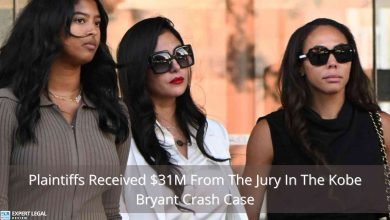The Biggest US Tax Evasion Case Requires Billionaire Robert Brockman To Go To Trial

A judge ruled that billionaire Robert Brockman must stand trial for the largest tax evasion case against an individual in US history, despite his claim that dementia renders him incompetent. US District Judge George C. Hanks Jr. dismissed claims that Brockman, 80, suffers from dementia and is unable to assist his lawyers in defending against a 39-count indictment accusing him of evading taxes on $2 billion in income and other crimes.
Robert Brockman Able To Stand Trial For Tax Evasion
Brockman’s attorneys contended that his progressive dementia, caused by Alzheimer’s and Parkinson’s disease, had recently worsened. They have stated that they will file a new incompetency claim.
“Despite Brockman’s recent health problems, the court finds that the government has met its burden of establishing that Brockman is competent to stand trial,” Hanks ruled Monday in federal court in Houston.
According to the judge, Brockman is “exaggerating his symptoms of severe dementia and his cognitive abilities are not as poor as reflected by his cognitive test results.”
“In other words, Brockman is delaying prosecution in order to avoid prosecution.”
The judge agreed with prosecutors that, while Brockman has some cognitive impairment, he has exaggerated his decline since 2018 as US investigators focused on whether they controlled billions of dollars in a Bermuda charitable trust.
They claimed Brockman continued to function at a high level even after his indictment in October 2020. Brockman later resigned as CEO of Reynolds&Reynolds, a software company.
The Justice Department has been investigating Brockman for five years, and the decision calls into question the department’s ability to prosecute wealthy tax defendants. Prosecutors claimed that the majority of the income he failed to report came from investments in Vista Equity Partners, which was founded by billionaire Robert F. Smith.
Smith entered the private equity world through an entity linked to Brockman, with an investment in Vista beginning around 2000 that later grew to at least $1 billion. Smith signed a non-prosecution agreement in 2020, agreeing to admit tax evasion, pay $139 million, and cooperate with Brockman.
Hanks’ decision comes after an eight-day competency hearing in November, during which doctors, experts, and colleagues testified about Brockman’s mental state. According to defense witnesses, neuroimaging studies show Brockman has moderate dementia.
However, prosecution witnesses testified that, while Brockman may have early Alzheimer’s disease, he lied about it for years. Prosecutors claimed in a court filing that he led a double life, “presenting to select doctors as severely cognitively impaired while simultaneously leading a normal, unimpaired life.”
In an unusual twist, Hanks heard from Evatt Tamine, a UK lawyer who oversaw Brockman’s offshore holdings for more than a decade. In 2018, Tamine reached an immunity agreement with US prosecutors. Tamine testified that he believes Brockman is innocent of tax evasion and money-laundering charges, despite the fact that he is under investigation in Bermuda and Switzerland.
Brockman also has to deal with the Internal Revenue Service, which assessed him a $1.4 billion tax bill in October. He sued the US in January to prevent the agency from assessing the levy immediately. He then filed a separate lawsuit in Tax Court a few days later.
The case is United States v. Brockman, 21-cr-09, United States District Court, Southern District of Texas (Houston).




